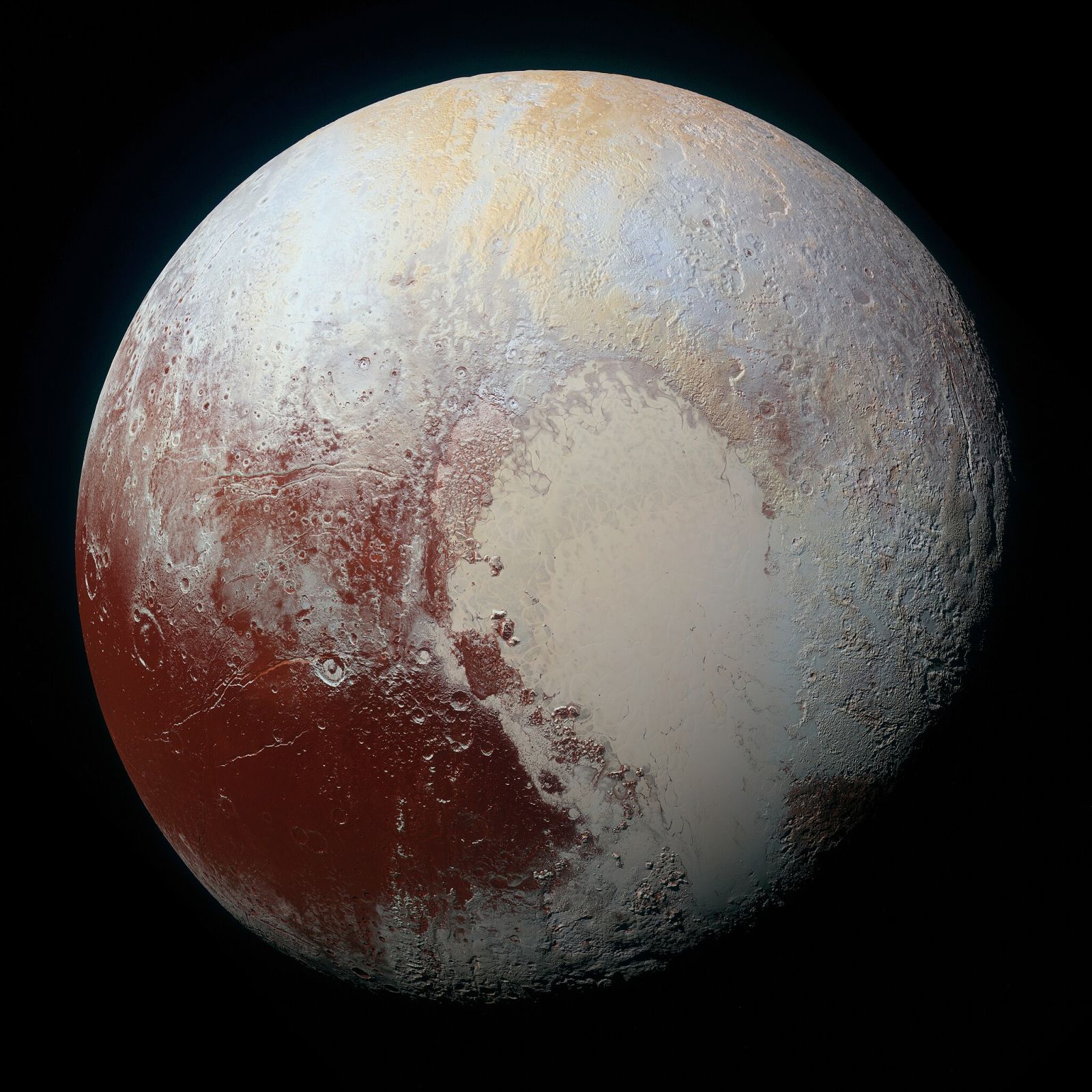Follow us on Google News (click on ☆)
However, a subsurface liquid water ocean on Pluto is being unveiled thanks to new research by Alex Nguyen, a student in Earth, Environmental, and Planetary Sciences at Washington University in St. Louis.

NASA image
In a study published in the journal Icarus, Alex Nguyen uses mathematical models and images from the New Horizons probe, which flew by Pluto in 2015, to closely examine the ocean likely lying beneath a thick layer of nitrogen ice, methane ice, and water ice. Patrick McGovern of the Lunar and Planetary Institute in Houston is a co-author of this study.
Due to its small size, Pluto should have lost almost all its heat shortly after its formation, quickly becoming a frozen body down to its core. However, clues gathered by scientists, including Pluto's cryovolcanoes that eject ice and water vapor, suggested the probable presence of a liquid ocean beneath the ice.
The new study examines this ocean in detail, though it is too deep to be observed directly. Nguyen and McGovern developed mathematical models to explain the cracks and bumps in the ice covering Pluto's Sputnik Planitia basin, the site of a meteoritic collision several billion years ago. Their calculations suggest that the ocean lies beneath a 25 to 50-mile (40 to 80 km) thick layer of ice, a shield that prevents the water from freezing completely.
They also calculated the probable density, or salinity, of this ocean based on the fractures observed on the surface. They estimate that Pluto's ocean is, at most, about 8% denser than Earth's seawater, roughly the same density as the Great Salt Lake in Utah.
Nguyen explains that this level of density justifies the abundance of observed fractures. If the ocean were less dense, the ice layer would collapse, creating more fractures. If the ocean were denser, there would be fewer fractures.